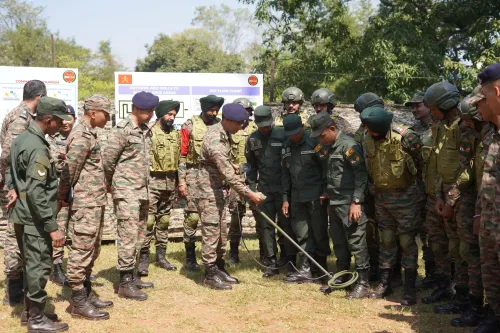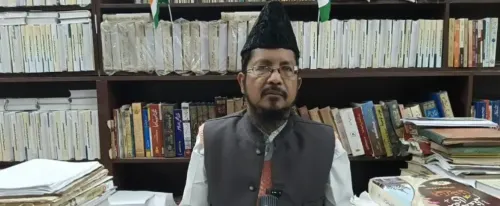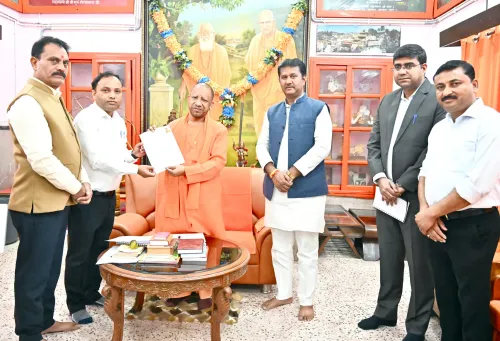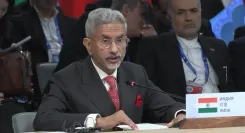Is the Government Committed to Expanding Metro Services to Tumakuru City?
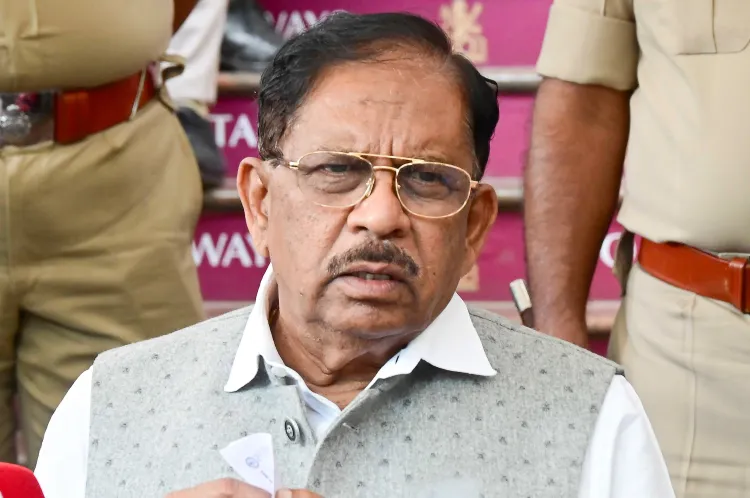
Synopsis
Key Takeaways
- Karnataka is focusing on improving metro connectivity to support regional growth.
- The proposed 59.6-kilometre metro corridor is vital for easing pressure on Bengaluru's infrastructure.
- Strong industrial presence in Tumakuru necessitates better transport links.
- Public-Private Partnerships (PPP) may finance the project substantially.
- Political discourse should prioritize development over rivalry.
Bengaluru, Nov 18 (NationPress) In a firm defense of the decision to issue tenders for the preparation of the Detailed Project Report (DPR) regarding the 59.6-kilometre metro line connecting Madavara in Bengaluru to the adjacent city of Tumakuru, Karnataka Home Minister G. Parameshwara remarked on Tuesday that BJP MP Tejasvi Surya, who criticized the initiative, lacks a comprehensive understanding of the project's background.
Addressing the media, Parameshwara, who also oversees Tumakuru District, stated, “Parliamentarian Tejasvi Surya has voiced his opposition to the metro extension from Bengaluru to Tumakuru, likely due to insufficient information on the subject. Every day, thousands travel from Tumakuru, and the areas of Nelamangala, Dabaspet, and Kyatsandra are undergoing rapid development.”
“In Bengaluru, the pressure is escalating, whether it pertains to power supply or transportation. Many individuals are opting to reside in the surrounding areas. Tumakuru is home to Asia's largest industrial zone, spanning 70,000 acres, with 150 industries already established, including the Timex factory and several food processing units, with land allocated for a Japanese township,” he elaborated.
He emphasized that with the pace of development quickening, Tumakuru necessitates enhanced connectivity. “Multi-modal transportation—via rail or road—is crucial. This will alleviate the burden on Bengaluru. As surrounding cities like Ramanagara, Kolar, and Tumakuru progress, the strain on Bengaluru will diminish,” he added.
Parameshwara pointed out that the metro extension idea was first proposed two to three years ago. “The Chief Minister committed to evaluating the proposal and announced a feasibility study, which yielded positive results. After that, I convened meetings with all relevant parties, leading to the approval for the DPR preparation. Once completed, we will assess the budget and seek funding options,” he explained.
He mentioned that numerous companies have expressed interest in investing under the PPP model. “When I spoke to several firms, they indicated a willingness to invest. They pledged to cover the project cost of approximately Rs 20,000 crore and submitted an official letter to the Chief Minister. Additionally, a company from Qatar has shown interest,” he noted.
“Despite this, I am puzzled by Tejasvi Surya's remarks made without a complete grasp of the situation. This matter transcends political rivalry; it is fundamentally about the development of our state,” Parameshwara stated.
“We must prioritize development. It is our duty, while in power, to facilitate the state's progress. Karnataka is a forward-thinking state, and the world is observing us,” he added.
He refrained from labeling the BJP leader as anti-development. “I cannot claim he is against development, nor can I say that the BJP opposes it. Ultimately, the public will judge based on actions,” he clarified.
When asked about the influx of students from around the country to Karnataka and Bengaluru for engineering and medical studies, he remarked, “Colleges are available everywhere, yet the quality of education here is globally recognized.”
“Post-liberalization, numerous institutions have shown interest in establishing universities in Karnataka. Liverpool University from England and an Australian university have both come forward, with several collaborations underway. All of these developments should be viewed through the lens of the state's advancement,” he concluded.
It is worth noting that the Bangalore Metro Rail Corporation Ltd. (BMRCL) recently called for tenders to prepare the DPR for the proposed 59.6-kilometre metro corridor between Madavara and Tumakuru—a decision that faced criticism from BJP MP Tejasvi Surya, who argued that the government should prioritize the long-overdue suburban rail project to enhance connectivity to Tumakuru.


